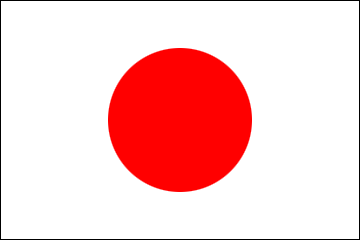Information to those who are planning to travel to Japan(Streptococcal Toxic Shock Syndrome (STSS))
2024/7/18
Streptococcus pyogenes is a bacterium that typically causes conditions like acute pharyngitis, but it's also known as the cause of a rare but severe condition called Streptococcal Toxic Shock Syndrome (STSS).
For streptococcal pharyngitis, there was the largest outbreak in the past decade since October 2023, while regarding STSS, the nationwide reported cases for the past year were 941 individuals, surpassing the highest number since statistics began in 1999, which was in 2019. Furthermore, as of June 2nd this year, the number of reported cases was 977 (preliminary figure), already surpassing the number of reported cases from last year.
The exact reasons for the increase in STSS cases are not entirely clear, but it's believed that besides the gradual increase over the years, the rise in the number of streptococcal pharyngitis cases, possibly due to various respiratory infections increasing after the relaxation of COVID-19 measures, could also be one of the contributing factors to the increase in STSS cases.
It's worth noting that globally, since the relaxation of COVID-19 measures after 2022, an increase in streptococcal pharyngitis and STSS has been observed in many regions, with some areas experiencing outbreaks last season while others are currently affected this season. This rising trend is not limited to Japan.
For individuals planning to travel to Japan, there's no need to cancel travel plans due to the outbreak of this disease. However, it's advisable to practice basic infection prevention measures such as hand hygiene, cough etiquette including mask wearing and proper wound care when traveling.
* Regarding the increase in invasive Group A Streptococcal infections (iGAS), including STSS, in Europe in December 2022, the World Health Organization (WHO) report does not recommend any restrictions on traveling to countries experiencing outbreaks.
* WHO. Increased incidence of scarlet fever and invasive Group AStreptococcus infection -multi-country
https://www.who.int/emergencies/disease-outbreak-news/item/2022-DON429
For streptococcal pharyngitis, there was the largest outbreak in the past decade since October 2023, while regarding STSS, the nationwide reported cases for the past year were 941 individuals, surpassing the highest number since statistics began in 1999, which was in 2019. Furthermore, as of June 2nd this year, the number of reported cases was 977 (preliminary figure), already surpassing the number of reported cases from last year.
The exact reasons for the increase in STSS cases are not entirely clear, but it's believed that besides the gradual increase over the years, the rise in the number of streptococcal pharyngitis cases, possibly due to various respiratory infections increasing after the relaxation of COVID-19 measures, could also be one of the contributing factors to the increase in STSS cases.
It's worth noting that globally, since the relaxation of COVID-19 measures after 2022, an increase in streptococcal pharyngitis and STSS has been observed in many regions, with some areas experiencing outbreaks last season while others are currently affected this season. This rising trend is not limited to Japan.
For individuals planning to travel to Japan, there's no need to cancel travel plans due to the outbreak of this disease. However, it's advisable to practice basic infection prevention measures such as hand hygiene, cough etiquette including mask wearing and proper wound care when traveling.
* Regarding the increase in invasive Group A Streptococcal infections (iGAS), including STSS, in Europe in December 2022, the World Health Organization (WHO) report does not recommend any restrictions on traveling to countries experiencing outbreaks.
* WHO. Increased incidence of scarlet fever and invasive Group AStreptococcus infection -multi-country
https://www.who.int/emergencies/disease-outbreak-news/item/2022-DON429
